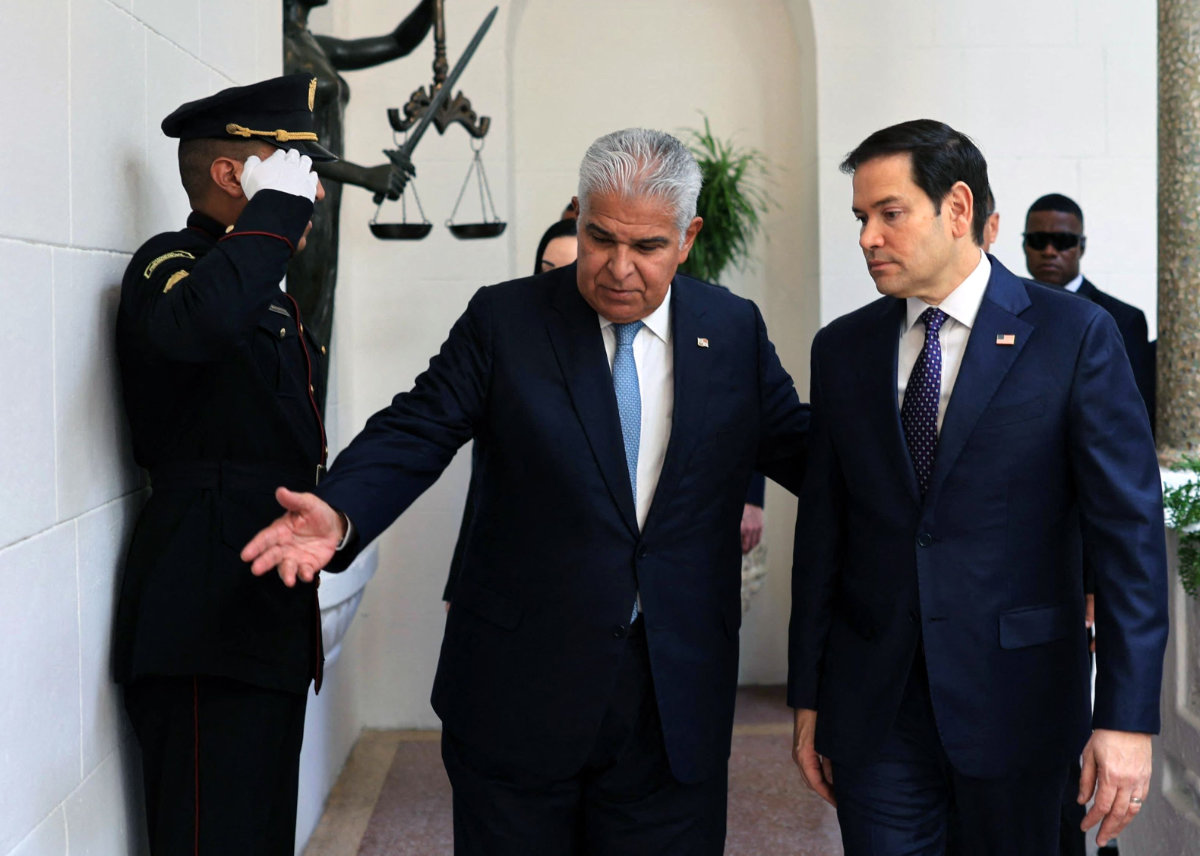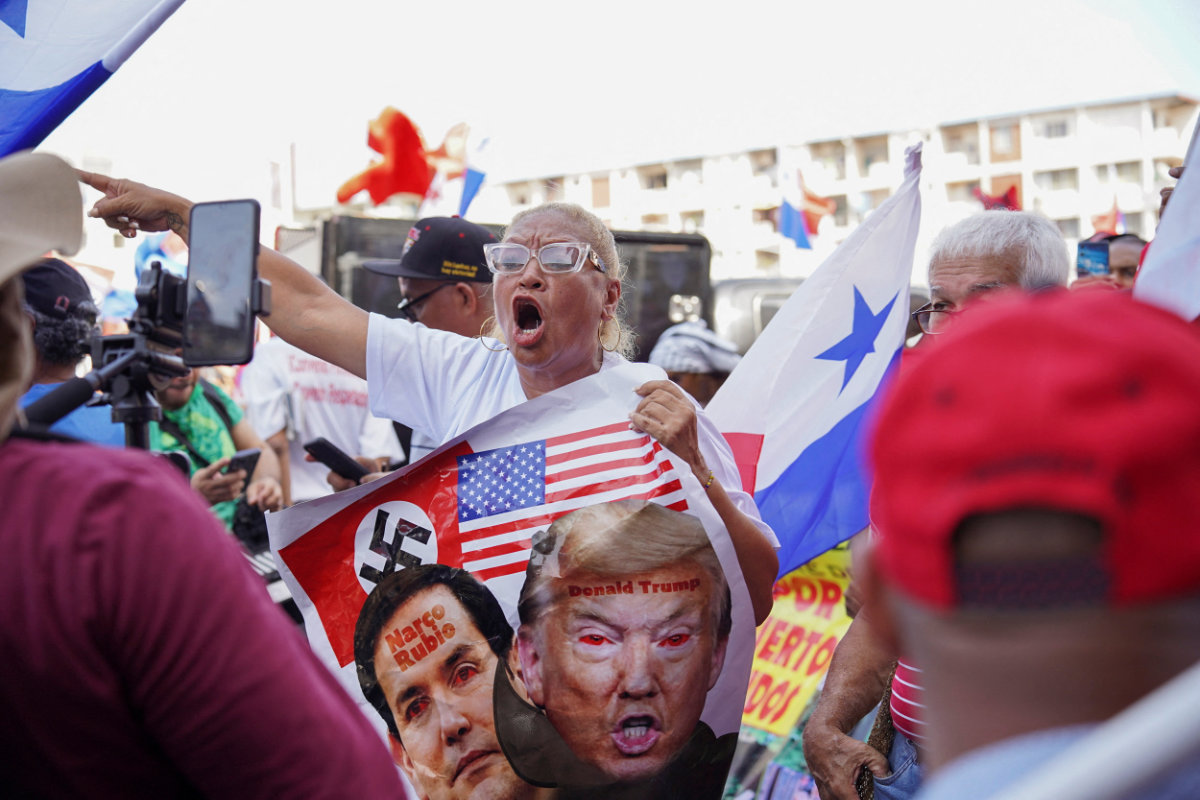AMBLETEUSE, France: The rising tide crept above their waists, soaking the babies they hugged tight. Around a dozen Kurds refused to leave the cold waters of the English Channel in a futile attempt to delay the inevitable: French police had just foiled their latest attempt to reach the United Kingdom by boat.
The men, women and children were trapped again on the last frontier of their journey from Iraq and Iran. They hoped that a rubber dinghy would get them to better lives with housing, schooling and work. Now it disappeared on the horizon, only a few of its passengers aboard.
On the beach of the quiet northern French town of Ambleteuse, police pleaded for the migrants to leave the 10-degree-Celsius (50-degree-Fahrenheit) water, so cold it can kill within minutes. Do it for the children’s sake, they argued.
“The boat is go!” an increasingly irritated officer shouted in French-accented English. “It’s over! It’s over!”
The asylum-seekers finally emerged from the sea defeated, but there was no doubt that they would try to reach the UK again. They would not find the haven they needed in France, or elsewhere in the European Union.
Europe’s increasingly strict asylum rules, growing xenophobia and hostile treatment of migrants were pushing them north. While the UK government has been hostile, too, many migrants have family or friends in the UK and a perception they will have more opportunities there.
EU rules stipulate that a person must apply for asylum in the first member state they land in. This has overwhelmed countries on the edge of the 27-nation bloc such as Italy, Greece and Spain.
Some migrants don’t even try for new lives in the EU anymore. They are flying to France from as far away as Vietnam to attempt the Channel crossing after failing to get permission to enter the UK, which has stricter visa requirements.
“No happy here,” said Adam, an Iraqi father of six who was among those caught on the beach in a recent May morning. He refused to provide his last name due to his uncertain legal status in France. He had failed to find schooling and housing for his children in France and had grown frustrated with the asylum office’s lack of answers about his case. He thought things would be better in the UK, he said.
While the number of people entering the EU without permission is nowhere near as high as during a 2015-2016 refugee crisis, far-right parties across Europe, including in France, have exploited migration to the continent and made big electoral wins in the most recent European Parliamentary elections. Their rhetoric, and the treatment already faced by many people on the French coast and elsewhere in the bloc, clash with the stated principles of solidarity, openness and respect for human dignity that underpin the democratic EU, human rights advocates note.
In recent months, the normally quiet beaches around Dunkirk, Calais and Boulogne-Sur-Mer have become the stage of cat-and-mouse games — even violent clashes — between police and smugglers. Police have fired tear gas, pepper spray and rubber bullets. Smugglers have hurled stones.
While boat crossings across the Channel represent only a tiny fraction of migration to the UK, France agreed last year to hold migrants back in exchange for hundreds of millions of euros. It’s an agreement akin to deals made between the European Union and North African nations in recent years. And while many people have been stopped by police, they are not offered alternative solutions and are bound to try crossing again.
More than 12,000 people have reached England in small boats in the first five months of the year, 18 percent more than during the same period last year, according to data published by the UK’s Home Office. The Home Office said 882 people arrived in the UK in 15 boats on Tuesday, the highest daily total of the year.
The heightened border surveillance is increasing risks and ultimately leading to more deaths, closer to shore, said Salomé Bahri, a coordinator with the nongovernmental organization Utopia 56, which helps migrants stranded in France. At least 20 people have died so far this year trying to reach the UK, according to Utopia 56. That’s nearly as many as died in all of last year, according to statistics published by the International Organization of Migration.
People are rushing to avoid being caught by authorities and there are more fatalities, Bahri said. In late April, five people died, including a 7-year-old girl who was crushed inside a rubber boat after more than 110 people boarded it frantically trying to escape police.
Authorities in the north of France denied AP’s request for an interview but have previously defended the “life-saving” work of police and blamed violence on smugglers who have also attacked officers.
A spot on a flimsy rubber dinghy can cost between 1,000 to 2,000 euros (around $1,100-$2,200) making it a lucrative business for the smuggling networks led primarily by Iraqi Kurdish groups. They can earn up to $1 million a month (approximately 920,000 euros) according to a report published earlier this year by The Global Initiative Against Transnational Organized Crime.
Sitting around a fire in an abandoned warehouse-turned-migrant camp in Calais, Mohammed Osman contemplated his limited options. The 25-year-old Sudanese man was studying medicine in Moscow when the civil war broke out in his home country a year ago. He suspended his dream of becoming a doctor. Forced to flee the fighting, his family could no longer afford to pay for his university fees and Osman was forced to leave Russia, where his visa only allowed him to study, not work. He crossed to Belarus and then to Poland where he says he was pushed back and beaten by Polish guards several times.
Eventually, he made it across the border and reached Germany where he tried to apply for asylum but was ordered to return to Poland, as per EU rules. All he wants now is to finish his medical studies in the UK, a country whose language he, like many other Sudanese people, already speaks. The issue, as always, is how to get there. Talks of potential deportation to Rwanda have only added more stress and frustration.
“So where is the legal way for me?” he asked. “I am a good person. I know that I can be a good doctor. … So what is the problem?”
In another makeshift camp near Dunkirk that police routinely attempt to clear, more dreams were held in suspense. Farzanee, 28, left Iran to follow her passion: becoming a professional bodybuilder. Back home she was banned from taking part in competitions and persecuted for her sport.
“I was even threatened with my family, that’s why I left my country,” she said, refusing to provide her last name out of fear for her and her loved ones’ safety.
Together with her husband, they managed to get a visa for France with a fake invitation letter. But even on EU soil they fear they could be deported back to Iran and believe only the UK to be safe. They have tried — and failed — to board boats to the UK “seven or eight times” but have vowed to keep trying until they make it.
“Us and other Iranians like me, we have one thing in common,” explained Farzanee’s husband Mohammad. “When you ask them they will tell you: ‘free life or death.’”
A few days after this interview, Mohammad and his wife Farzanee made it safely to the UK
Strict asylum rules and poor treatment of migrants are pushing people north to the UK
https://arab.news/zvwtz
Strict asylum rules and poor treatment of migrants are pushing people north to the UK

- Europe’s increasingly strict asylum rules, growing xenophobia and hostile treatment of migrants pushing them north
- Some migrants don’t even try for new lives in the EU anymore






























